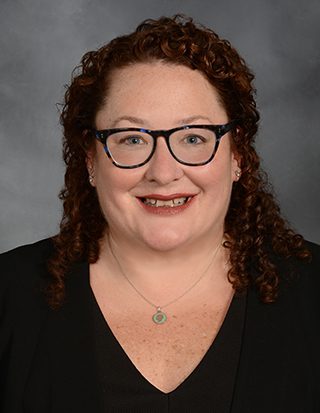First Over-the-Counter Birth Control Pill Approved by the FDA
An OB-GYN explains what to know about Opill, the first birth control pill to be available in the U.S. without a prescription.

The U.S. Food and Drug Administration (FDA) recently approved the first over-the-counter birth control pill to be available in the United States without a prescription. The oral contraceptive, which is generically called norgestrel and sold under the name Opill, is expected to be in drugstores and pharmacies across the country early next year.
“Having over-the-counter hormonal contraception that is safe and available without a prescription is a huge step in making birth control more widely accessible in the United States,” says Dr. Aileen Gariepy, obstetrician and gynecologist at NewYork-Presbyterian/Weill Cornell Medical Center and the director of Complex Family Planning at Weill Cornell Medicine.
Dr. Gariepy spoke with Health Matters about Opill, how it works, how effective it is, who can take it, and who should not.

Dr. Aileen Gariepy
What are the benefits of an over-the-counter birth control pill?
Dr. Gariepy: Since it’s over-the-counter, you don’t need a prescription for it. There are many people in the U.S. who don’t have access to prescription contraception, whether that’s because they don’t have insurance, or they don’t have a health care provider. In many parts of the U.S., access to readily available physicians is difficult and needing a prescription for contraception can be a high barrier for people to overcome.
Another benefit to an over-the-counter birth control pill is that you can give yourself pregnancy protection whenever you want it. You can stop taking it at any time and restart it if you want to. There’s a lot more autonomy and control.
How does Opill work?
Opill is also called a “mini pill,” because it contains only one hormone, progestin. It works by thickening the mucus in the cervix, which makes it difficult for sperm to reach an egg. Other types of birth control pills combine estrogen and progestin, but Opill is progestin-only.
Is Opill safe?
Progestin-only pills like Opill are considered very safe. We prescribe progestin-only pills for people who should not take the combined birth control pills because they contain the hormone estrogen. This includes people with medical conditions such as uncontrolled high blood pressure, or with a history of blood clots, stroke, or heart attack that puts them at an increased risk of blood clots. We also prescribe progestin-only pills for conception after a woman has given birth or if she is breastfeeding. Over-the-counter birth control pills are widely available in many other countries, so we know that not requiring a prescription is safe.
Who should not take Opill?
People who currently have or have ever had breast cancer should not take Opill and should speak with their oncologist about which contraception methods are right for them. Also, people with certain liver diseases and those with undiagnosed abnormal vaginal bleeding should not take it without speaking with a doctor first.
How effective is Opill?
Opill is 99% effective at preventing pregnancy when used correctly. That means taking the pill at the same time each day and not skipping pills. With typical “real-life” use, understanding that people may not always take it exactly as directed, it is 93% effective. That is still more effective than other currently available nonprescription contraceptives.
When used correctly, Opill is effective after two weeks. If you forget a pill, you should take the pill as soon as you remember, and then take the next pill at the usual time. If this means you end up taking two pills on the same day, that’s safe. Continue taking the rest of the pill pack, and use a nonhormonal form of contraception as a backup, such as condoms or spermicides, or abstain from sex for two days.
Are there any side effects?
Unscheduled bleeding, or bleeding in between your periods, can happen with Opill, and with any other birth control pill, especially if you miss a pill or change the time when you take it. Some people report breast tenderness and acne as well.
The FDA is tasked with making sure that the drugs that we put on the market are safe and effective for people to use. Having over-the-counter, safe hormonal contraception has a potentially huge public health impact.
Aileen Gariepy, M.D., M.P.H., M.H.S., is a board-certified obstetrician and gynecologist at NewYork-Presbyterian/Weill Cornell Medical Center and an associate professor of obstetrics and gynecology at Weill Cornell Medicine. Dr. Gariepy is a fellowship-trained sub-specialist in Complex Family Planning. Dr. Gariepy is a fellow of the American College of Obstetrics and Gynecology and serves on the Society of Family Planning’s Board of Directors and the American Medical Women’s Association’s Reproductive Health Coalition Steering Committee.
